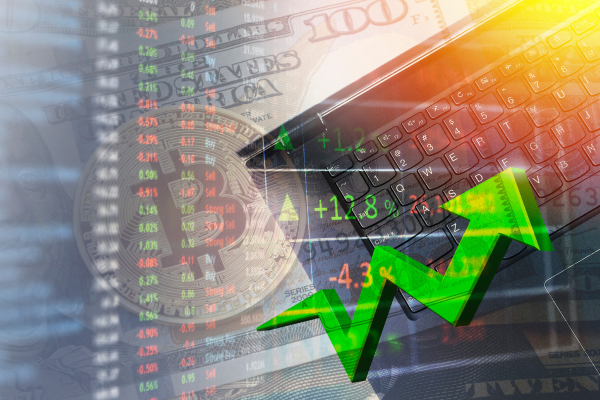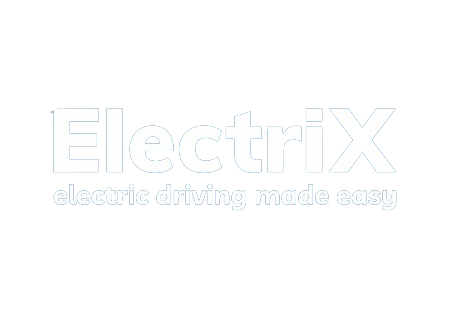In case you missed it see what’s in this section
Let's Talk

The Future of Cryptocurrency Exchange: Technological Innovations and Trends
Cryptocurrency exchanges have come a long way since the early days of Bitcoin. As the market continues to grow and evolve, so does the technology that underpins it
In this blog, we will explore some of the key technological innovations and trends shaping the future of cryptocurrency exchanges. In the dynamic realm of cryptocurrencies, the future of exchanges is undergoing a transformative shift fueled by cutting-edge technological innovations and emerging trends. Two intriguing examples that epitomize this evolution are the seamless "Exchange EGLD to ETH" and the dynamic "Exchange SHIB to BTC." These transactions not only represent the interplay of diverse digital assets but also signify the changing face of cryptocurrency exchange platforms.
Blockchain Interoperability
Blockchain interoperability is a crucial development in the cryptocurrency space. Currently, most cryptocurrencies operate on their separate blockchains, making it difficult for different networks to communicate and share data. However, with the rise of blockchain interoperability solutions, such as cross-chain bridges and protocols, users will be able to seamlessly transfer assets between different blockchains. This will not only enhance liquidity but also open up new possibilities for decentralized applications (DApps) and smart contracts.
At the forefront of the future of cryptocurrency exchange is the concept of blockchain interoperability, exemplified by the process of "Exchange EGLD to ETH." This technological innovation allows cryptocurrencies from different blockchains, in this case, Elrond (EGLD) and Ethereum (ETH), to seamlessly interact and be exchanged. Blockchain interoperability enhances liquidity, reduces transaction friction, and fosters a more interconnected ecosystem.
Decentralized Finance (DeFi) Integration
Decentralized Finance, or DeFi, has been one of the most exciting developments in the cryptocurrency industry in recent years. DeFi platforms allow users to lend, borrow, and trade assets directly, without the need for intermediaries or central authorities. As more cryptocurrencies become compatible with DeFi protocols, we expect further integration between cryptocurrency exchanges and DeFi platforms. This integration will enable users to access a wide range of financial services directly from their exchange accounts, such as yield farming and liquidity provision.
A prominent trend shaping the future is the integration of decentralized finance (DeFi) principles, vividly demonstrated in the scenario of convert shib to btc. Shiba Inu (SHIB) and Bitcoin (BTC) find themselves as key players in this decentralized landscape. DeFi integration empowers users to engage in peer-to-peer transactions directly from their wallets, contributing to a trustless and decentralized trading experience.
Smart Contracts Streamlining Transactions
Smart contracts are self-executing contracts with the terms of the agreement written directly into the code. They automatically execute transactions when certain pre-defined conditions are met. Smart contracts have become a cornerstone of many blockchain applications, and their integration with cryptocurrency exchanges can streamline and automate a wide range of processes. From settlement and clearing to token issuance and distribution, smart contracts can significantly reduce the need for intermediaries and improve the overall efficiency of cryptocurrency exchanges.
Tokenization of Assets
Tokenization is the process of representing real-world assets, such as real estate or commodities, as digital tokens on a blockchain. The tokenization of assets has the potential to revolutionize traditional markets by making them more accessible, transparent, and liquid. Cryptocurrency exchanges are uniquely positioned to facilitate the trading and transfer of tokenized assets. By leveraging blockchain technology, exchanges can enable fractional ownership, instant settlement, and 24/7 trading of a wide range of assets, opening up new investment opportunities for individuals around the world.
Artificial Intelligence (AI) and Machine Learning (ML) Integration
Artificial Intelligence and Machine Learning have already made significant contributions to various industries, and their potential impact on cryptocurrency exchanges is no different. AI and ML algorithms can analyze vast amounts of data, identify patterns, and make predictions to assist traders in making informed decisions. Additionally, these technologies can help detect fraudulent activities, improve security measures, and enhance user experience on exchanges. As AI and ML continue to evolve, we can expect to see more intelligent trading bots, personalized recommendations, and advanced risk management tools on cryptocurrency exchanges.
As cryptocurrency exchanges grapple with vast amounts of data, the integration of artificial intelligence (AI) and machine learning (ML) becomes crucial. Exchanges facilitating "exchange egld to eth" and "exchange shib to btc" are expected to leverage AI and ML algorithms to analyze market trends, predict price movements, and enhance user experience through personalized insights and recommendations.
Regulatory Compliance and Security Measures
As cryptocurrency exchanges continue to grow, regulators are paying closer attention to ensure compliance with existing financial regulations. Exchanges are investing in robust Know Your Customer (KYC) and Anti-Money Laundering (AML) processes to mitigate the risk of illicit activities. Additionally, security measures are being bolstered to combat hacking attempts and safeguard user funds. With evolving regulations and a focus on user protection, future cryptocurrency exchanges will need to stay ahead of the game by adopting advanced security measures and regulatory frameworks.
In conclusion, the future of cryptocurrency exchanges is poised to be driven by technological innovations and trends. From blockchain interoperability and the integration of DeFi platforms to the streamlining of transactions through smart contracts, the possibilities for innovation are vast. Tokenization of assets, AI and ML integration, and regulatory compliance further contribute to the growth and maturation of cryptocurrency exchanges. As the industry continues to evolve, users can look forward to a more seamless, secure, and efficient trading experience. As we navigate the future of cryptocurrency exchange, the amalgamation of blockchain interoperability, DeFi integration, smart contracts, tokenization, and advanced technologies like AI and ML paints a picture of a more robust and user-centric ecosystem. "Exchange EGLD to ETH" and "Exchange SHIB to BTC" serve as organic examples woven into the fabric of this transformative landscape, where innovation and adaptability are keys to a thriving future in the world of digital assets.
Weather in Swindon
Listings





















